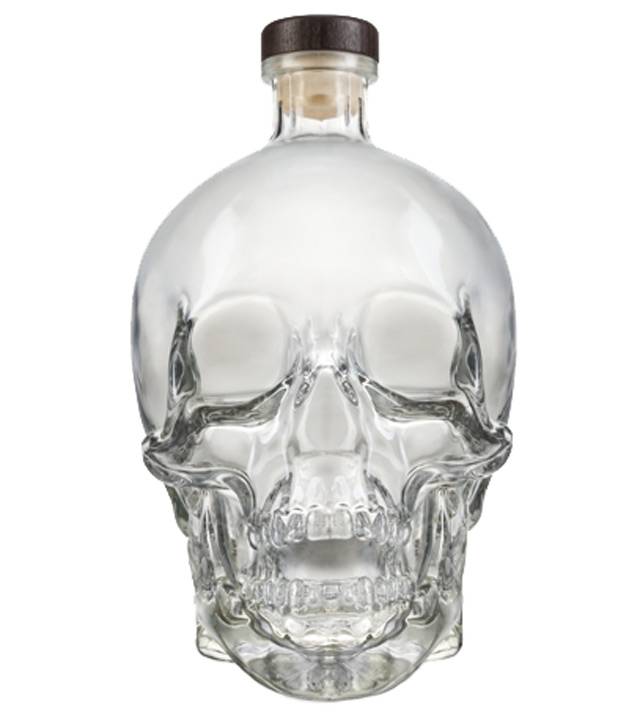Entries in Ninth Circuit (8)
Ninth Circuit Vacates Trademark Infringement Dismissal
The Ninth Circuit decided a trademark infringement lawsuit while I was in China. It came down on June 27, but here’s a quick summary. Sorry for the delay!
Rearden LLC sued Rearden Commerce, Inc., for trademark infringement in the U.S. District Court for the Northern District of California. Rearden LLC owns technology start-up incubators and artistic production companies. Rearden Commerce is a “concierge” company that links buyers and sellers of business and travel-related services. The beef, obviously, was over the parties’ competing uses of REARDEN.
The district court granted summary judgment for Rearden Commerce.
Citing the factual nature of trademark infringement claims, the Ninth Circuit vacated the order. It’s a pretty fact-specific decision, but the court concluded that genuine issues of material fact existed with respect to both “use in commerce” and likelihood of confusion. Therefore, it found the district court’s dismissal on summary judgment was a mistake.
The court held: “There, nevertheless, are genuine issues of material fact present in this case with respect to at least some of the factors as well as the overall Sleekcraft [v. AMF, Inc. v. Sleekcraft Boats, 599 F.2d 341 (9th Cir.1979)] inquiry itself. The District Court acknowledged that two factors — namely the ‘strength of the mark’ and ‘similarity of the marks’ factors — weigh ‘somewhat’ in favor of Appellants. Indeed, a reasonable jury could give great weight to these two factors, especially when viewed together. We also determine that there are genuine issues of material fact with respect to the ‘proximity of the goods,’ ‘evidence of actual confusion,’ ‘marketing channels used,’ and ‘likelihood of expansion of the product lines’ factors.”
The court remanded the case to the district court for further proceedings consistent with these findings.
The case cite is Rearden LLC v. Rearden Commerce, Inc., __ F.3d __, No. 10-16665, 2012 WL 2402012 (9th Cir. June 27, 2012).
Ninth Circuit Reverses Functionality Finding for Skull-Shaped Vodka Bottle
 Globefill’s trade dress: Not functional, the Ninth Circuit says
Globefill’s trade dress: Not functional, the Ninth Circuit says
Plaintiff Globefill Incorporated makes booze. So does defendant Elements Spirits, Inc.
In 2010, Globefill sued Elements in the Central District of California for trade dress infringement.
It described its trade dress in connection with its crystal head vodka as “a bottle in the shape of a human skull, including the skull itself, eye sockets, cheek bones, a jaw bone, a nose socket, and teeth, and including a pour spout on the top thereof.”
The Central District of California dismissed Globefill’s claim on grounds of functionality.
On May 23, the Ninth Circuit reversed, finding the skull design was purely ornamental.
“We typically consider four factors in determining whether a product feature is functional: ‘(1) whether the design yields a utilitarian advantage, (2) whether alternative designs are available, (3) whether advertising touts the utilitarian advantages of the design, (4) and whether the particular design results from a comparatively simple or inexpensive method of manufacture.’ Disc Golf Ass’n, Inc. v. Champion Discs, Inc., 158 F.3d 1002, 1006 (9th Cir. 1998).”
Applying these factors, the court found “the trade dress elements Globefill described in its operative complaint cannot be said to be functional as a matter of law. The skull design is ornamental and serves no utilitarian purpose; alternative bottle designs are available in abundance; and using the design increases, rather than decreases, Globefill’s manufacturing and shipping costs.”
Therefore, it found the trade dress was not functional and reversed.
The case cite is Globefill Inc. v. Elements Spirits, Inc., No. 10-56895, 2012 WL 1868861 (9th Cir. May 23, 2012).
Ninth Circuit Affirms False Advertising Finding Against Skydiving Marketer
Skydive Arizona, Inc., has sold skydiving services under its SKYDIVE ARIZONA trademark since 1986.
Cary Quattrocchi, Ben Butler, and others, d/b/a 1800SkyRide (“Skyride”), operate an advertising service that makes skydiving arrangements for customers and issues certificates that can be redeemed at a number of skydiving drop zones.
Skydive Arizona sued Skyride in the District of Arizona for false advertising, trademark infringement, and cybersquatting. On its false advertising claim, it alleged that Skyride misled consumers wanting to skydive in Arizona by stating that Skyride owned skydiving facilities in Arizona when it did not. It also alleged that Skyride deceived consumers into believing that Skydive Arizona would accept Skyride’s skydiving certificates when it would not.
Following partial summary judgment and a trial, a jury awarded Skydive Arizona $1 million in actual damages for false advertising, $2.5 million in actual damages for trademark infringement, $2,500,004 in profits resulting from the trademark infringement, and $600,000 for statutory cybersquatting damages.
Skyride appealed the court’s finding of liability for false advertising on summary judgment on the ground its false statements were not material to consumers’ purchasing decisions. In particular, Skyride argued that customer James Flynn’s declaration that supported the materiality element was ambiguous and fell short of survey evidence that courts often accept as proof.
The Ninth Circuit wasn’t convinced. “Skydive Arizona’s decision to proffer declaration testimony instead of consumer surveys to prove materiality does not undermine its motion for partial summary judgment. Although a consumer survey could also have proven materiality in this case, we decline to hold that it was the only way to prove materiality. Indeed, as we held in Southland Sod [Farms v. Stover Seed Co., 108 F.3d 1134, 1140 (9th Cir.1997)], consumer surveys tend to be most powerful when used in dealing with deceptive advertising that is ‘literally true but misleading.’ Here, Defendants’ advertisements were both misleading and false. Flynn’s declaration proved that consumers had been actually confused by SKYRIDE’s websites and advertising representations. The district court’s materiality finding was further supported by Skydive Arizona’s evidence of numerous consumers who telephoned or came to Skydive Arizona’s facility after having been deceived into believing there was an affiliation between Skydive Arizona and SKYRIDE.”
The case cite is Skydive Arizona, Inc. v. Quattrocchi, __ F.3d. __, No. 10-16196, 2012 WL 763545 (9th Cir. Mar. 12, 2012).